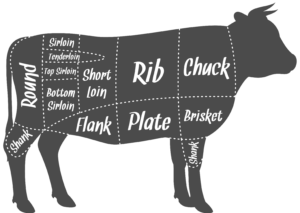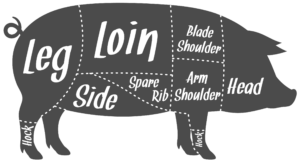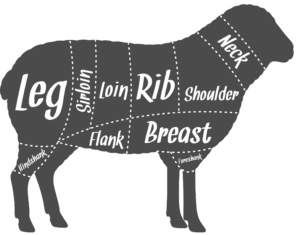We’ve all heard about the rise of Obesity in the United States, both in adults, and children. Since the 1970’s obesity in children (six to eleven years old) has risen from just under 5%, to nearly 20%. We often discount this to the fact that children simply seem to be eating more junk food, and spending more time inactive in front of a TV rather than playing outside. Though quick, simple, and easy answers are aptly named (they are quick, simple, and easy) they often are capable of skipping over minor (and perhaps larger) details. Is this the case with our answer to the rise in childhood obesity?
Though the theory of “more junk food less action” effectively explains the rise in obesity in adolescence, it seems a little far fetched that, by the age of six, a child is capable of consuming enough junk food to all ready be considered obese. In addition, most children are not physically developed enough to participate in physical activities such as running, jumping, or general outside play until the age of five or six. It almost seems as though their weight is not in their control, and maybe it isn’t.
Epigenetics is the newly developed study of the plasticity of your genetics. It studies how genes are not set in stone, but can actually be moved around within your chromosomes, can be “turned off”, and “turned back on” again through a process known as methylation. It shows that some genetic traits can actually be changed during ones life, and potentially passed on to your children.
What does this mean to childhood obesity? It means that lean people are capable of producing the genetics for an overweight child, and that overweight people are capable of the opposite. How so?
Suppose a lean or skinny individual consumes a large amount of junk food. They may not necessarily become overweight due to a genetic predisposition towards a hyperactive metabolism (a fact that causes many people a great deal of jealousy and frustration). However, though junk food is high in sugars and carbohydrates (the stuff that makes you gain weight when consumed in excess), it is low in nearly every other nutritional need. This lack of necessary nutrients actually signals to your body that you are starving. Though this may not mean much for you, other than the general feeling of lethargy associated with over consumption of junk food, it could mean a lot to your future children. It is possible that the “starvation signal” sent by your body causes a major change in the genetic code of your gametes (reproductive cells) causing them to have an ultra-efficient metabolism. The result, a child with a metabolism that thinks it’s starving, and thus uses everything it digests to build up stores of fatty tissue to ward off the “impending starvation”. Though it is understood that the mother has much more influence on her child’s epigenetic trends seeing as she carries him or her for nine months, research suggests that the dietary habits of the father also impact the child’s health.
So is the rise in childhood obesity brought on by a rise in the consumption of junk food, or by an unlucky genetic predisposition? Both factors probably play a huge role in the weight of children, but as seen by epigenetics, neither is truly out of our control. In other words, your health and eating habits affect more than just you. It is possible that your eating habits can set your children to a metabolic genetic predisposition, for better or worse, for several generations. Eat healthy, it’s not just your own waist line at stake!
Conner Smith
Sources: Moalem, S., & Prince, J. (2007). Survival of the sickest: The surprising connections between disease and longevity / Sharon Moalem with Jonathan Prince. NY: HarperCollins. Genetics and epigenetics of obesity. (n.d.). Retrieved January 1, 2014, from http://www.ncbi.nlm.nih.gov/pmc/articles/PMC3213306/ National Center of Health Statistics. (2010). Retrieved January 1, 2014, from http://www.cdc.gov/nchs/data/hus/hus10.pdf

























